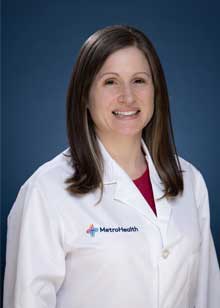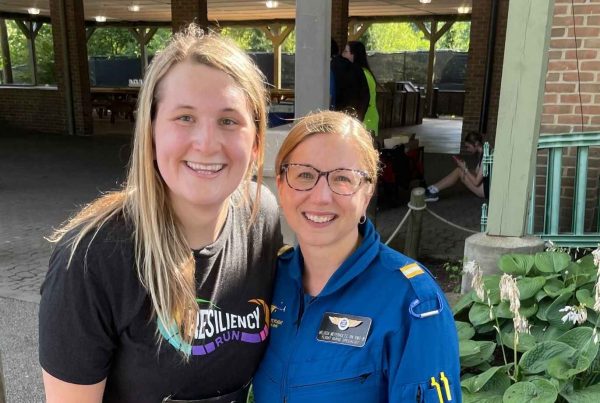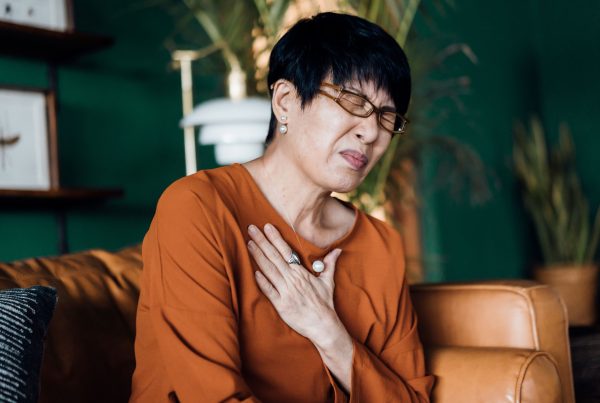Here’s what you need to know about the symptoms of a concussion and when to seek help for a head injury.
There are some immediate warning signs of a concussion and some that can show up hours or even a few days later.
You might think that a concussion – also known as a mild traumatic brain injury (TBI) – is mostly something athletes get. Concussions happen when your head is hit hard (by an object or the floor if you fall) or shaken hard (such as whiplash in a car accident).
The number one cause of concussion in adults? Falls – not sports mishaps, says Victoria Whitehair, MD, Director of the Brain Injury Rehab Program at MetroHealth.
Do I have a concussion?
There are some immediate warning signs of a concussion and some that can show up hours or even a few days later.
Immediate Warning Signs:
- Losing consciousness, even briefly
- Being unable to follow simple directions
- Feeling disoriented
Symptoms you may notice in the hours and days after:
- Confusion
- Feeling uncoordinated in your actions
- Forgetfulness
- Headaches
- Dizziness
- Vision problems
- Light or sound sensitivity
- Irritability
Treatment for Concussions:
The thinking on treating concussions has changed. Healthcare providers once told patients that they had to rest for longer periods, but now experts say that 1-2 days of rest is smart, followed by a gradual return to regular activities, with your medical team’s OK.
However, it’s important not to re-injure yourself while you recover. That’s why athletes with concussions are restricted from playing for longer than they once were and why they should always see a healthcare provider before returning to play.
Most people recover from concussions quickly, but it’s important to remember that because concussions are mild brain injuries it takes some people longer. These are the patients Dr. Whitehair tends to see at her clinic.
Tips for preventing concussions:
- Always wear your seatbelt.
- Wear a helmet when doing anything on wheels.
- Talk with your healthcare provider about how to prevent falls.
Go to the Emergency Department (or call 911) if:
Otherwise, you are probably OK to visit your primary care provider or a concussion clinic. The earlier you do that, the better. Your provider will check you out and come up with a plan to help you recover and get back to your activities.
MetroHealth Comprehensive Concussion Center
If you or a loved one has concussion symptoms that are not going away,
you may need to see a specialist. To schedule an appointment at
MetroHealth’s Comprehensive Concussion Center, call 216-778-4414.












